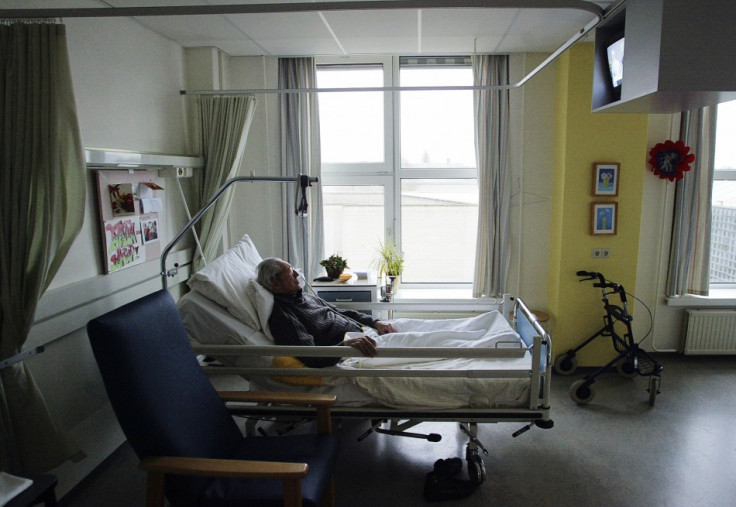'Why I Rejected the Report Calling for Assisted Suicide in the UK'

A report by the Commission on Assisted Dying which claimed there is a "strong case" for allowing assisted suicide was "not in the position to make sweeping suggestions for a change in the law", claims the sole commissioner to reject the conclusions.
"I started off with some sympathy for a liberalisation of the law which would maximise a person's freedom to choose," Reverend Dr James Woodward, who was one of the 11 commissioners working on the report, told International Business Times UK.
"It seemed to me that only discussing the issue of end of life care, dying and death, within the narrow context of both the law and medicine, failed to offer a kind of holistic picture of the complexity of both the reality of dying and death but also the ethical issues around choice and right and wrong."
He said the view of changing the law was "informed by a rather functionalist, medicalised view of the person" which was "unsatisfactory".
Discussions about assisted dying, especially when making policy recommendations, must consider the ethical and philosophical questions around life and death, argues Woodward.
"I think when we're faced with the reality of our own death that one of the things we do is ... the apprehension of death is something we do with our heart as well as our head and that actually it is impossible for us all to take a completely rational detached view of the nature of death and its reality for us."
He added: "We've got to ask what this experience means, as well as assert the absolute right, if it is an absolute right, of people to be able to choose, in certain circumstances, to end their lives."
Woodward was "very affected" by a trip to the assisted suicide clinic Dignitas in Switzerland.
"Wandering around the Dignitas house had a kind of odd, eerie coldness about it, that seemed very detached from human life as I've come to see it and know it," he said.
Report's Criticism of Bias 'Not Fair'
Attacks by anti-assisted suicide campaigners have labelled the report as biased, because it was set up and funded by pro-assisted dying campaigners, and some of the commissioners have stated in the past that they are in favour of a law change.
These criticisms are rejected by Woodward as "not fair".
"I think if you go on to the commission's web page and you look at the way in which we interrogated the evidence ... [it] was listened to, interrogated, reflected on, so I think there is a rigour and a quality to the work," he said.
"To be fair to the work of the commission, it was never quite the brief to have a wider, sociological, philosophical, theological debate.
"In the end I wasn't able to sign up to the recommendations as unless we have that debate, we're not in the position to be able to make sweeping suggestions for a change in the law."
Woodward added: "I think it is a very, very serious piece of work. It absorbed a huge amount of time and effort ... but what I'm saying is let's take the report and try an engage with people about what death means for them and what choice the feel they may need to have in the face of death."
© Copyright IBTimes 2025. All rights reserved.






















